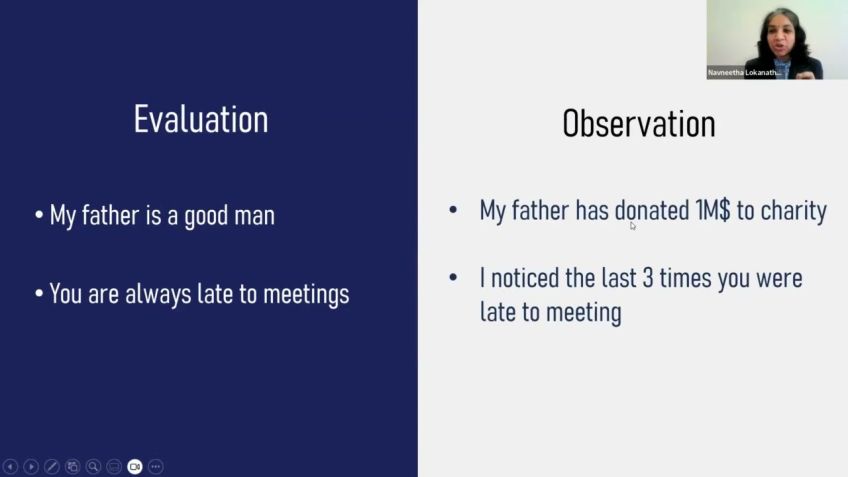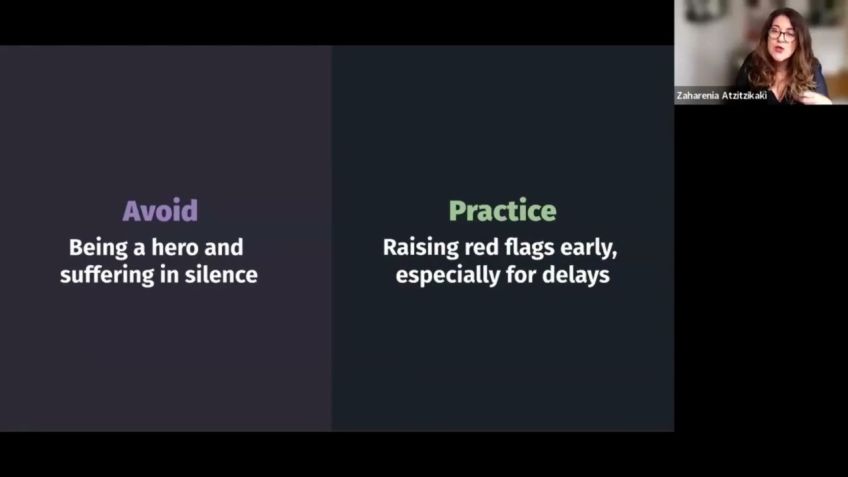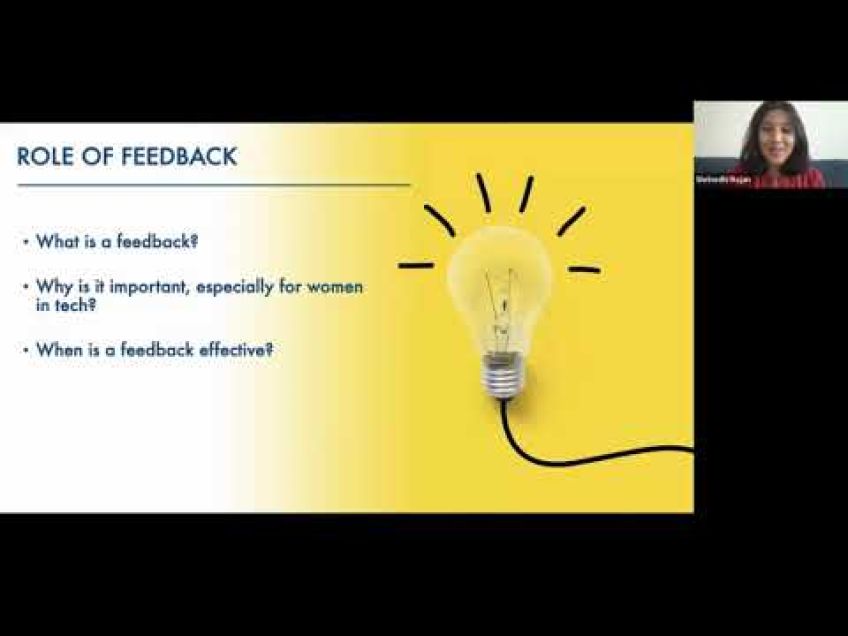How to give and receive feedback - tips & tricks by Sen Kanner
Guiding the Art of Giving and Receiving Feedback
Hello, reader! I'm Sanker, an experienced professional in the tech industry and for the last couple of years, I have actively been engaged in diversity equity, public speaking, and inclusion. Today, I will be your guide in the world of feedback – how to give it, receive it, and importantly, learn from it.
Reactions to Feedback
The notion of receiving feedback can spark various emotions in different personalities. Some may be filled with enthusiasm, while others may meet it with a sense of dread. Essentially, feedback is a powerful instrument in our paths to improvement and development. It's important to recognize its potential and learn from the experiences it provides.
Your Attitude Towards Feedback
Think about your gut reaction when someone offers you feedback. Unease? Happiness? Surprise? For most, it's often an instinctive fear, stemming from a simple question - What did I do wrong?
Understanding Feedback
Feedback is a communication tool used for improvement. It's often perceived only as criticism, but it’s essential to remember that positive reinforcement is also feedback. Feedback is neither good nor bad until it is presented. Its impact is influenced by the context and the approach employed during the delivery. On a personal level, providing feedback could be as simple as letting a friend know they've been a great listener. Professionally, it translates to our daily progress assessments at work - regular evaluations of our performance and responsibilities.
Case of a Junior Developer
Let's consider this - you're a junior developer who's just started on a new major project, only to realize you developed it in the wrong production environment. In hindsight, wouldn't you have preferred receiving feedback on your mistake as early as possible? Feedback can sometimes feel uncomfortable, but it's usually beneficial.
How to Apply Feedback
Knowing how to translate feedback into actionable insights is crucial in the feedback cycle. Being able to understand, digest, and subsequently apply the latter to your activities enhances your overall learning and growth. On receiving feedback about a poorly written email, for example, you could gain insights that help you communicate more effectively in the future.
Tips for Accepting Feedback
- Be Proactive: Ask for feedback regularly. Draw on others' perspectives to improve.
- Active Listening: Ensure you understand the perspective of the person providing feedback. You may need to ask follow-up questions or take a step back for deeper understanding.
- Show Gratitude: Regardless of whether the feedback is positive or negative, showing appreciation can improve future interactions.
- Reflect: Most importantly, learn from the feedback and carry those insights forward.
Giving Feedback to Others
Indeed, giving feedback can be just as challenging as receiving it. Reflecting on your own emotions when expecting feedback can help you approach another person with the same sensitivity.
Guidelines for Giving Constructive Feedback
- Request Permission: Before offering feedback, clarify whether or not the other person is open to it.
- Be Clear and Specific: Avoid vague comments. Provide clear, actionable feedback.
- Highlight Their Strengths: Praise what they are doing well and should continue to do.
- Respect Different Perspectives: Understand that your perception may not align with that of others and share yours respectfully.
Nurturing a Feedback Culture
Once you master the art of giving and receiving feedback, the next step is to cultivate a similar culture among your peers.
Facilitating Feedback in Your Environment
- Build Trust: Apply the feedback you've received and share the subsequent actions you've taken with your team.
- Open-Mindedness: Be receptive to feedback from others and avoid getting defensive.
- Courage: Even without a power dynamic, giving someone honest feedback can be nerve-wracking, but it's a step in the right direction.
Conclusion
Feedback - it's astonishing how this one mechanism can either enhance growth or lead to worry, depending on one's perspective. I hope this write-up leaves you looking forward to rather than dreading feedback, picturing it as a learning opportunity rather than a judgement. Let's promote an environment where we are equally eager to give and receive feedback. For that alone will chart our course to success. Remember, we are always learning, and in that spirit, my door is open for any feedback you may have on this article!
Video Transcription
All right. So, hello everyone. My name is Sanker. My pronouns, are she her? I am very, very excited to have you all here. Please introduce yourself in chat.Write your pronouns if you feel comfortable or where you're listening in from, I'm in my home in Stockholm right now and I can talk very briefly about my background. I've been working in tech for the last 12 years. Most of it was in educational roles or with educational responsibilities. And in the past two years, I have started working on diversity equity and inclusion along with public speaking, which has been very fun so far, I'm passionate about tech leadership and unionizing. So what we'll talk about today will be how to give and receive feedback. We'll go through some tips and tricks and what I hope you'll take away with you is not to be afraid of feedback, how to implement feedback, how to take it to heart, to really learn from it and how to give feedback to others. In turn in a constructive way and encourage others to give feedback and enjoy receiving it as well. I know it sounds like a lot, but we're gonna get through it together.
So to start this conversa conversation, if you could write and chat, if you're comfortable write in chat, what do you feel about receiving feedback? So, what is your instinct, gut feeling, first reaction to someone saying I have some feedback for you or can I talk to you about your presentation? I know in the past when I saw these kind of messages, I'd immediately get anxious. This thought of like, yeah, exactly. A bit scared of what did I do wrong, right. Oh, I'm so happy. There's someone who likes feedback as well that is so good. But yes, anxiety. It's, it's very scary, isn't it? But let's see if we can fix that, shall we? So what is feedback? Feedback is a communication tool. It's used for improvement. We all need feedback to learn and develop feedback is often perceived as being told that you can do something better. But positive feedback is just as important. Whenever someone tells you you did a good job, that's also feedback.
And this kind of communication is key for the way we progress through life in our professional context. We are routinely under assessment, being evaluated for better or for worse on our performance or on our responsibilities. On a personal level, letting a friend know that they're a good listener or reaching out to your partner to explain that they hurt you is also an example of giving feedback. So in essence, feedback can be good and it can be bad, it can be constructive and it can be absolutely useless. It really depends on the context, right? The situation how it's presented, good feedback can still be delivered badly and vice versa. So we're going to go through some nuances in a little bit. What will be talking about mostly is when it comes to positive reinforcement. I think everyone will agree that it gives a good feeling, right? It helps increase trust, performance and overall a good experience. But then we need to understand why are we afraid of negative feedback? Is it, is it that we're not good enough that we made a mistake? Is it a failure? No, it's, it's not what it's about at all. Feedback is an indicator of what we're doing well and what we can do better. So let's use an example. You've got a new and exciting role as a junior developer. You're enthusiastic and can't wait to start working on a project.
Your boss gives you a simple assignment to begin with. And the next day you're proud to show all the progress you've made. But then there's one problem you find out that you accidentally developed it in the wrong production environment. In retrospect, how early would you have appreciated getting feedback that you were on the right environment, probably very early on, right. Yeah. As soon as possible. Exactly. So receiving feedback can sometimes feel uncomfortable. But if you remember to keep a good perspective. It's almost always for the best.
Like I said, it's a tool that you can use and we need feedback to know if we're doing well or not. And if you want to get better, want to improve, you need to use all the tools available to you, feedback included. And what you do with feedback is just as important. You need to understand the feedback and take it to heart. That means implementing it into your work as with most things, practice makes perfect. So whatever it is, you receive feedback on try taking the necessary steps to improve.
For example, when I recently received feedback, that an email I sent out wasn't clear enough. I immediately thought alongside my team lead who gave me this feedback, what I could have done better and what I should do better next time. Generally, when it comes to communication, a surefire advice is pretend you're talking to a child that basically forces you to be as clear as you can be. In my case, I didn't need to go that far. But the following few emails I had to write, I kept that feedback in mind and I made sure to be as clear as I can be. So anyone could understand the email, even if they didn't have the full context asking for help goes side by side with being better at receiving feedback. Your mindset should be I'm receiving help by getting this feedback. So don't be worried about asking follow up questions if the feedback you receive doesn't initially make sense to you. Ask what you could have done better, try to get a practical plan forward to implement the feedback and improve. So for tips on accepting feedback, ask for feedback proactively, that means reaching out yourself and saying, what do you think of this page? I wrote, what do you think I could have done to handle this ticket? Better use active listening.
Take your time to truly understand where the feedback is coming from. Ask follow up questions or take a step back and gratitude. Say, thank you. It's easy when the feedback is positive. But if you also show gratitude when it is not because you still see it as an opportunity to learn, it will make the conversation feel better for both you and the other person and reflect. This is the most crucial part that you learn and you take the feedback with you forward, what you could try to improve next or what you could maintain and then it comes the time when the tables turn and hopefully now you feel a little bit better about feedback and you understand that it is a useful tool.
So how do you wield it towards others? What happens when you're on the other side and you see room for improvement. The first thing to do is remember how you felt in the beginning of this talk just 10 minutes ago. If you said you were anxious, most people feel the same way, the same anxiety and worry about feedback. So short of sending them a link to this talk first, which of course, I will appreciate. You can also just ask the person first if they are ready to receive feedback, make sure to describe what it relates to. So for example, you can make sure that you and this person are alone. So either in chat or in person and just ask, can I give you some feedback about the meeting you had earlier, if they say no respect it and move on and if they agree, give your feedback in a constructive way when it comes to actually giving feedback, try to be clear and specific a vague comment.
Like your communication skills could be better, won't really help anyone improve. But if you say something like you should speak up in meetings more, then that gives someone a concrete plan of action, they understand what they should be doing. Make sure to explain what you thought could be improved, why and how they can practice it. If you have the expertise offer, help highlight what you thought they did well and should keep going as well. Another tip is to remember that almost always truth is relative, how you perceive someone's behavior might not be how other people perceive it as well. So make sure to explain that your feedback is coming based on your observation and your perspective. I feel that you did a great job with stakeholder management. It seemed to me that you had a lot of confidence. All right. Now that we've gone through some of the basics, let's discuss some more advanced tips and tricks to make you give feedback. Like a pro when giving feedback, have a two way conversation. That means leading up with questions. How do you feel about your project? Try to see where the person themselves already feel they need to improve or what they are proud of and build on that. If they're insecure about something, you think they did, great highlight it. And if you both agree on something that needs more work, build an action plan together.
On the other hand, if they are confident about an aspect that you think they could improve on, share your input as a suggestion on how they could be even better, and if you both agree on what they excel with, that's the best. And it can just be a good round of high fives. It's important to remember that you give feedback as a way to support and not to micromanage someone. A second tip is don't stop at suggesting ways to improve but also hold a retrospective. So make sure to give the person more chances to practice and develop their skills and then meet up after a few weeks and see how they feel if they need more support. If there's anything else, you can work on this shows commitment to help someone on their journey and we'll teach them that they can reach out to you for support. And lastly, I cannot stress this enough, ask for feedback in return, make sure to lead by example and ask for feedback. As often as you give it. Every good manager I had in Klarna had this in common, they would ask for feedback repeatedly and show that improving is a journey that never ends. And we're all always learning. So we're almost at the end. But let's go through one more thing before wrapping up.
When you're feeling more comfortable with giving and receiving feedback. What's the next step? How do you encourage others to give feedback as well? The first thing is earn their trust, make sure you are leading by example and taking feedback to heart and implementing it. So be transparent with the feedback that you've been given and the actions that you take also, you should make sure you take it well, when you're open minded to feedback, it shows if you don't get defensive or dismiss people's intention, you'll make feedback, discussions a more natural and comfortable experience and have courage.
When you're not in a position of power, it can be very intimidating to give someone honest feedback. But as I said, lead by example. So the feedback is important on any level in an organization or a relationship if done. Well, it can only be used to improve So in conclusion, I hope that you are no longer afraid of feedback if you are and that you see it as a useful tool on your road to success. Remember to understand feedback that you've been given and implement it in your work. While keeping these tips in mind. You should be more comfortable in giving feedback as well and encourage others to give feedback more often. And in the spirit of all we've learned today. Thank you for listening. And I will share a link in chat. Please feel free to feel feedback for me for this talk. I will really appreciate it and take it to heart. There is also the option to submit feedback at the top of the chat. So please feel free to do that for all the other talks as well and feel free to connect with me on linkedin. Thank you so much and enjoy the rest of this lovely conference.





